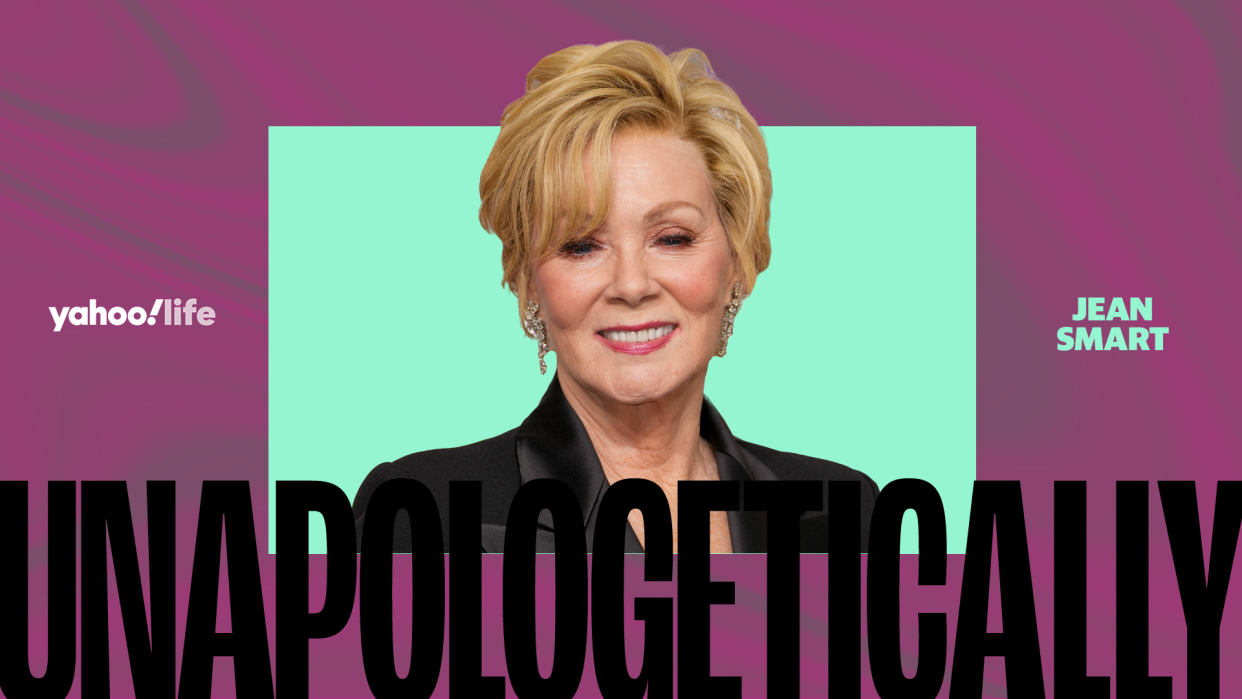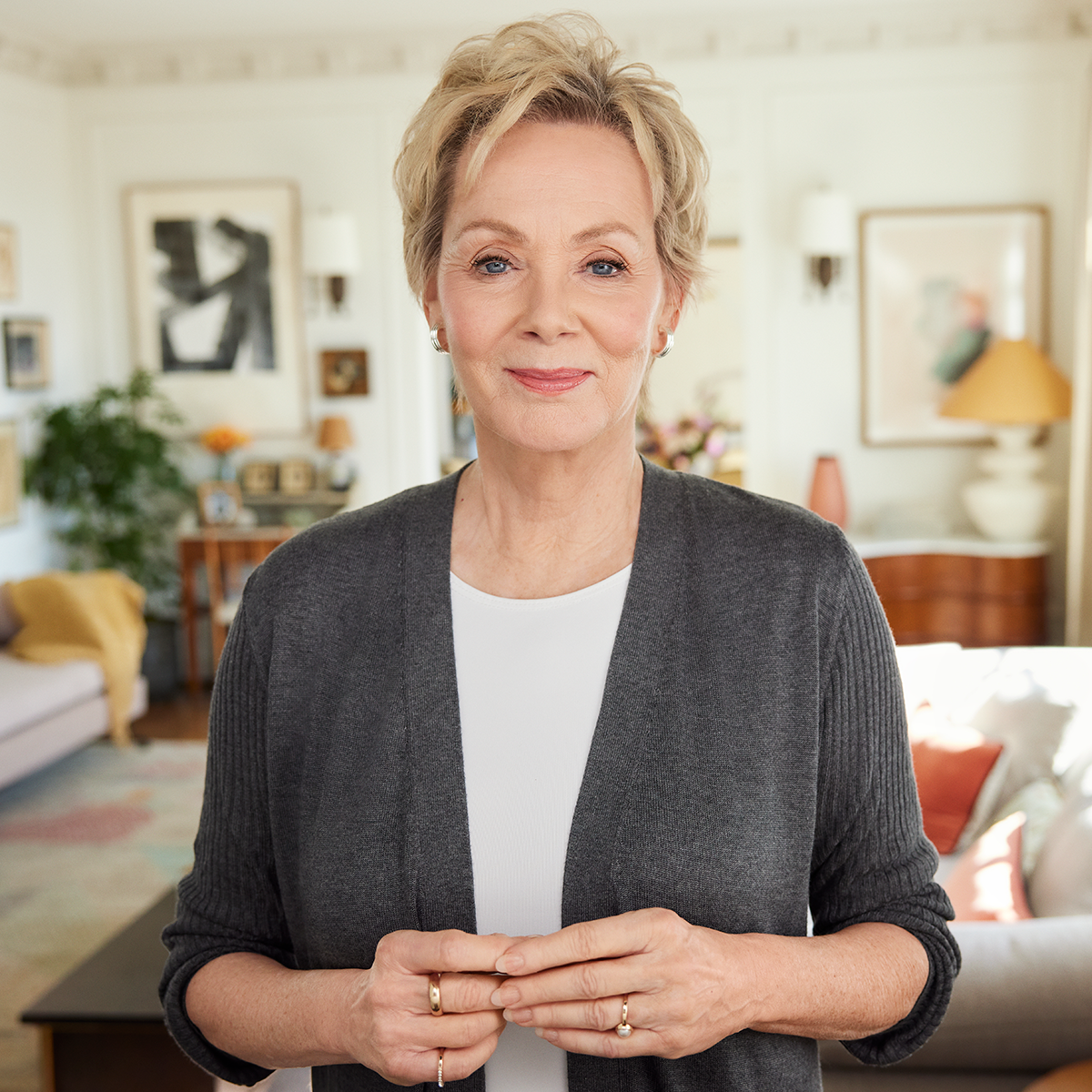Jean Smart on finding a greater purpose with age: 'I’m not taking a single day for granted'

In a career spanning over four decades, Jean Smart has mastered the art of reinvention — from sitcom darling in hits like Designing Women and Samantha Who? to dramatic powerhouse in shows like Mare of Easttown and Hacks. But off-screen, the 71-year-old actress faces a role that requires no less resilience: navigating life as a diabetic in the age of COVID.
"In terms of being older, everything becomes a little bit more serious, health-wise, which is a real drag," Smart tells Yahoo Life. "As a diabetic, it complicates everything."
According to the Centers for Disease Control and Prevention, 37.3 million people (11.3% of Americans) are currently living with diabetes. In March 2020, when the U.S. implemented mandatory lockdowns in hopes of offsetting rising cases of COVID-19, Smart says she prepared for the worst not only for herself, but for her family and fellow cast members on Hacks — one of many projects that halted due to the pandemic.
It was tough to navigate diabetes while in lockdown with her son Forrest, now 14, and husband, actor Richard Gilliland (who died in March 2021, ushering in a whole new chapter of difficulty for Smart and her boy).
“I knew COVID was something I needed to take seriously,” Smart explains of those early days of the pandemic. “That was scary. And also with my job, I felt responsible for the cast."
But she’s putting her stressful experience to good use as part of Pfizer's Know Plan Go campaign, helping to educate those at highest risk for COVID on how to stay healthy and better prepare for the future. Those risk factors, according to the CDC, include past or present cancer diagnoses, heart conditions, diabetes, obesity and more. Age is also a significant factor, with more than 81% of COVID-related deaths occurring in people over age 65.
Against the backdrop of a new Yahoo News/YouGov poll showing that only 7% of Americans are "very worried" about the new COVID variant Pirola, Smart is cautioning at-risk people to not be complacent.
"It’s sorta like living in California and having earthquakes," she says of the importance of being prepared. "If you have a 'Know Plan Go' in place, you’ll know what to do if [COVID] happens, and you can make a plan.”

Raising awareness around health issues has always been a mission for Smart. “I had this fantasy of being a nurse when I was little,” she says. “Growing up, I wanted to help people and save people. My brother grew up to be a big, heroic firefighter so I guess he lived out my fantasy. I guess this is as close as I'll come.”
To that end, with age comes a greater appreciation for things you can’t change — as well as the occasional guffaw, she says.
"Laughter is the best medicine," says Smart. “Sometimes I look in the mirror and go, ‘Ah! Who’s that? Oh, hi mom.’ Of course, there's the feeling of, 'oh my god, if I'd only known then what I know now,' but that’s not the way it works. The older you get, you realize: I don’t feel that different than when I did when I was 20 or 30. I feel like the same person, except my body isn’t cooperating.”
Luckily, Smart points out, people are viewing aging differently than in years past.
"There’s an appreciation more for older people," she explains. “The idea used to be that if you were 30 or 35, you didn't think about older people having sex. That was like, ‘Oh, God, this is bad!’ But that's changing, and I hope it makes young people more optimistic about the future.”
"There really is a calming, sort of wisdom you receive with age,” she continues. “You appreciate things more. It’s like being married for a really long time and you say your vows — ‘till death do us part’ and ‘through sickness and health’ — but do you really mean those? It wasn't until I’d been married about 10 years, when we went through a difficult patch, that I realized what those vows really meant.”
That same idea can be applied to the relationship we have with our own bodies, Smart says, offering a metaphor that she finds helpful: “Your body is like a car. You need to maintain it and checkup, get the wheels rotated and the oil changed regularly," she says. "And not freak out when you have to."
Like in February, when Smart had to undergo a last-minute heart procedure. “That was shocking,” she recalls. “But it's not unusual for someone like me who's had diabetes since they were 13 years old. I feel good now, and I’m glad I listened to how I was feeling and didn’t just poo-poo it at the time.”
It's a lesson Smart had strengthened by the example of Mary Tyler Moore, who died in 2017 at 80 years old. Moore had been living with diabetes since her mid-30s and became an advocate for raising awareness about the condition later in life — and whose discussion of misconceptions around diabetes Smart found eloquent.
“‘Sure, I put on the makeup and the eyelashes and the wig, and I'm sitting here chatting and laughing and everybody thinks, 'Oh my god, she looks amazing, she's doing great,’ but you don't see internally any of the things that have taken a toll,'" Smart approximates the best she can about what Moore had said. "See, when you have something like this for many years, it's going to affect certain systems in your body.”
Now, Smart says she chooses to mask up while in “close proximity” to people indoors for hours at a time, admitting that while taking precautionary measures (such as being well-rested and eating healthier) seems “boring," it's important to find gratitude in such small things.
“I'm suddenly at the age — and I hate this part — where you can kind of see the end. When you're 20 and 30 and 40, you've got an eternity ahead of you and you don't even think about it,” she says. “Now, if I have a day where I feel kind of crummy or grumpy, or I didn't do anything productive, I think, wow, that was an entire day. How many days do I have left?”
“I’m not taking a single day for granted now,” she adds. “And the healthier you are, the more you're going to enjoy them. And the more enjoyment you have, the better days it's going to bring.”
